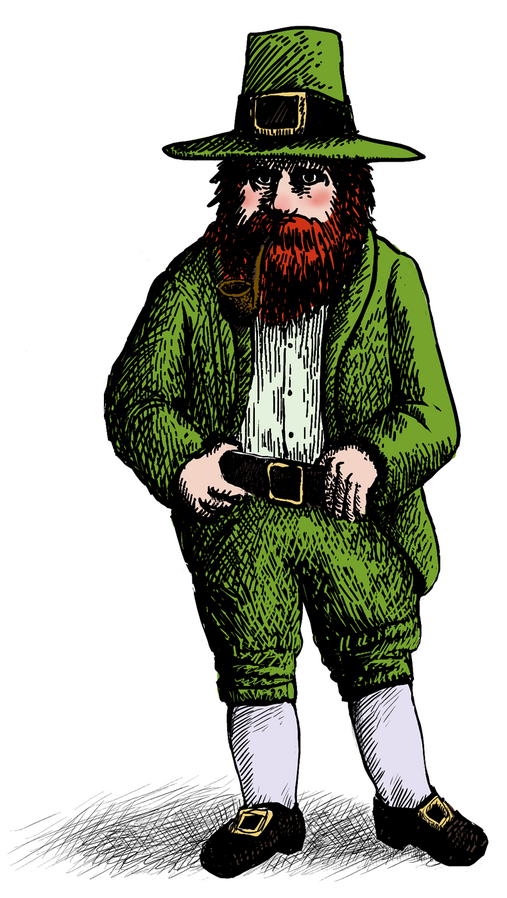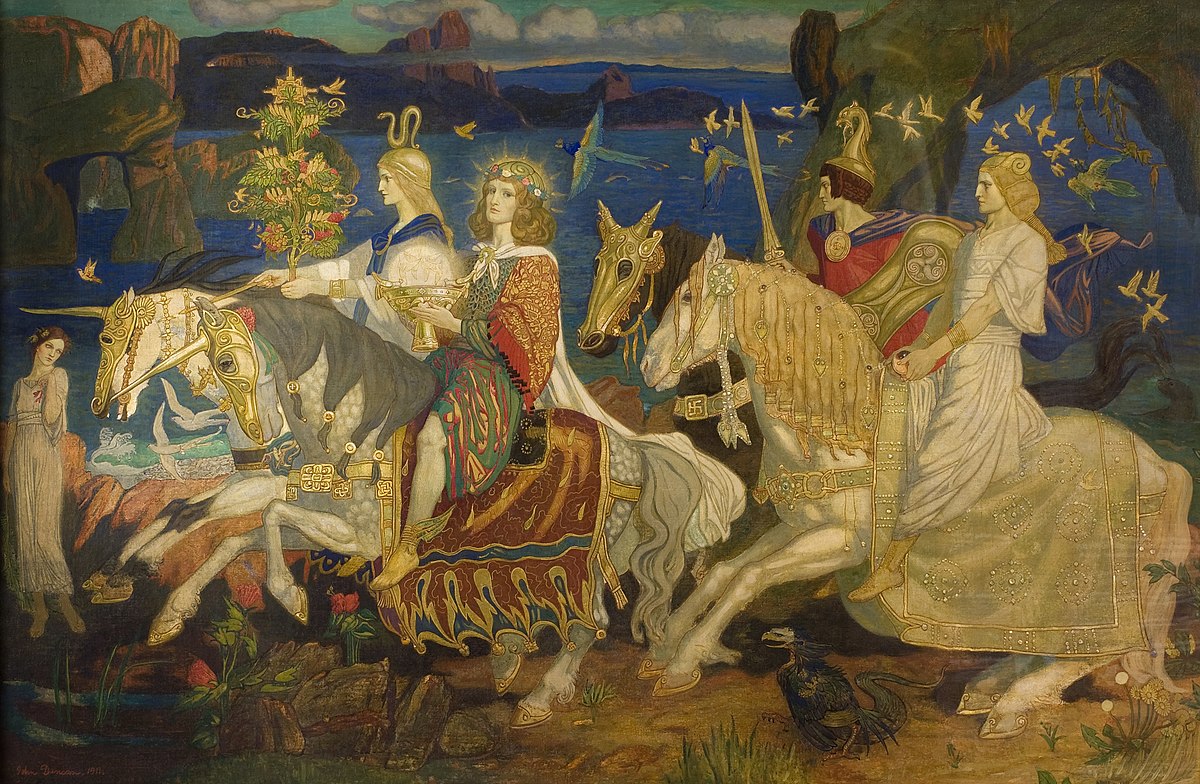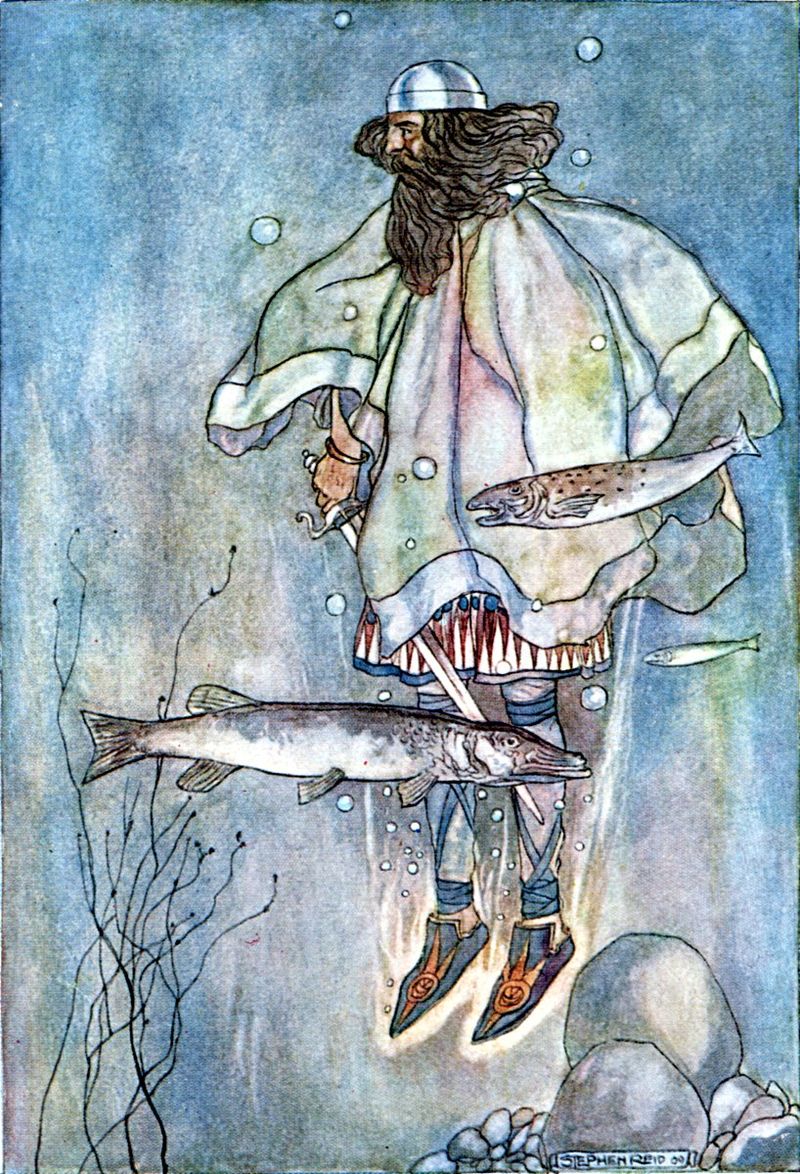The mythological origins of leprechauns

Illustration of a leprechaun by Jean-no under the Free Art License
|

"Riders of the Sidhe" by John Duncan, public domain
But the leprechaun's mythological origins don't stop at Lugh. One of the oldest stories leprechauns are believed to have been referenced in is "The Adventure of Fergus Son of Léte," where they're presented as water sprites - aka the lúchorpáin ("little bodies" or "leprechaun"). In the story, our fearless hero Fergus is asleep, and the aforementioned lúchorpáin try heaving him into the sea. Unfortunately for the lúchorpáin, the freezing water jolts Fergus awake. He snatches up those pesky little men, and only after they grant him three wishes does he set them free. Fergus's wishes consist of breathing underwater: in seas, pools, and lakes. He's granted these wishes by the lúchorpáin, but the power doesn't work in Loch Rudraige. Even still, Fergus tries swimming in the waters of Loch Rudraige, but he's met with the horrible monster Muirdris. The creature is so terrifying that Fergus's face becomes disfigured, permanently contorted in a terrified expression. He later slays Muirdris and dies of exhaustion afterward. |

"Fergus goes down to the lake" by Stephen Reid, public domain
I think Fergus's tale is especially interesting because of the themes it shares with modern stories about leprechauns.
For example, it's said that if you catch a leprechaun, you can either demand three wishes from him or get the location of his pot of gold, but there are generally consequences in doing so (the opening scene of the 1993 horror-comedy film Leprechaun is just one modern example of this theme).
Basically, it's believed that leprechauns are a warning against greed, and I would argue that Fergus's disfigurement is a result of his own greed. If he had accepted the limits of his power, he would have never come across Muirdris!
I hope you enjoyed March 2024's favorite folktale!

Receive a free book and never miss an update from A. P. Mobley by signing up for her newsletter, War on the Gods Army!
Thanks for joining War on the Gods Army!
Be sure to check your email inbox for your free book. If you don't see it, check your spam and promo folders for it.